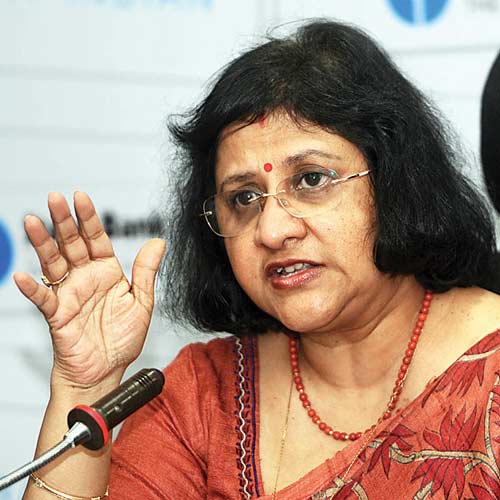FP Dinesh Unnikrishnan15 Nov 2014
State Bank of India (SBI), the country’s largest lender, on Friday came out with decent numbers in the September quarter. The most critical factor in SBI’s earnings is steady decline in fresh slippages and health recovery.Gross non-performing assets (NPA) of the lender, during the quarter, have come down to 4.89 percent of its total loan book from 4.9 percent in the preceding quarter.
Thus, SBI’s bad loans have come down by a total of 84 basis points (bps) since the third quarter of last fiscal from 5.73 percent to 4.89 percent. One bps is one hundredth of a percentage point.
Net NPAs, after adjusting provisions, too have declined to 2.73 percent from 2.91 percent compared with the year-ago quarter even though have gone up marginally from the preceding quarter.
In the last one year, SBI has attempted to get a firm hold on the bad loan scenario by identifying the problematic areas and intensifying the fight against wilful defaulters, borrowers who do not pay back even if they have the capacity to do so.
The biggest pain on SBI’s book emerged from the mid-sized corporate segment and agriculture, which continued to be significant contributors to bad loans this quarter. But the bank has clearly managed to address the stressed asset situation as reflected in the quarter numbers.
The net profit at Rs 3,100 crore has beaten the estimates of analysts polled by CNBC at Rs 3,096 crore. The improvement in the net interest income to Rs 13,275 crore, up 8.4 percent, from Rs 12,251 crore in the corresponding period last year, has aided the 30 percent jump in the profit on a year-on-year basis.
SBI’s other income, which includes the treasury income, too have grown by 39 percent to Rs 4,571 crore from Rs 3,278 crore in the year-ago period.
Loan growth has been robust for the bank with its advances growing by 9.7% on year, which, in turn, helped the lender to manage strong growth in Interest income.
Total provisions, during the quarter stood at Rs 4,275 crore of which Rs 4,028 crore was set aside for bad loans.
That said, the numbers announced by other state-run banks such as Punjab National Bank and Indian Bank of India, reiterate the belief that the banking sector, dominated by government banks, is yet to come past the worst as far as bad loan situation is concerned.
Gross NPAs of total 40-listed Indian banks have grown by 17.5 per cent in the September quarter to Rs 2,68,933 crore from Rs 2,28,895 crore in the year-ago quarter and up by 7 percent compared with Rs 2,51,962 crore in the June quarter. But the pace of increase in bad loan generation has surely come down.
Of the total bad loans, almost 90 percent comes from state-run banks.
Bad loans are only one segment of the total stressed assets in the banking system. The other chunk is the restructured loans, which constitute almost double to the declared gross NPAs in the banking system.
Together, stressed assets constitute 13-14 percent of the total loans given by banks, while bad loan generation remained modest in private banks.
There are at least 10 banks in the Indian banking system, which have Gross NPAs above 5 percent of their total loans. Topping the list are state-run banks such as United Bank of India and Indian Overseas Bank.
As Firstbiz has noted earlier, the seeming economic revival is yet to show on the ground as reflected in the muted credit growth of banks largely due to the absence of new project proposals.
Unless the positive sentiments post the arrival of the Narendra Modi government at the Centre translates into investments and real economic activity on the ground, banking sector will not be freed from the ills of NPAs.
But the long-term solution lies in freeing state-run banks from the control of the government. These banks must be prepared to find sufficient capital to survive on their own instead of the current practice of annual capital infusion through budget allocation.
Going ahead, the government will find it extremely difficult to meet the rising capital requirement of state-run banks unless it is willing to reduce holding in these banks.
Also, shorter tenures of top executives and frequent intervention from politicians in the business decisions of government banks have only helped to add to their incompetence of sarkari banks before deep-pocketed tech-savvy rivals in private sector.











